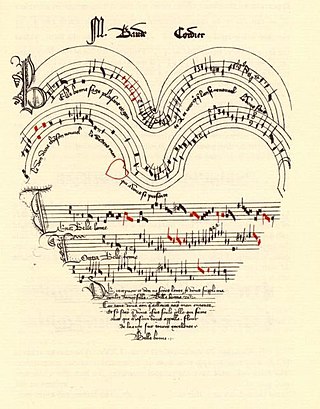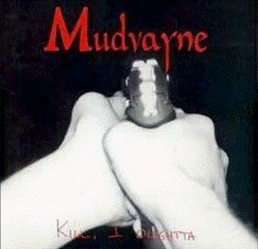Nu metal is a subgenre of alternative metal that combines elements of heavy metal music with elements of other music genres such as hip hop, funk, industrial, and grunge. Nu metal rarely features guitar solos or other displays of musical technique, and emphasizes rhythm with instrumentation that is heavily syncopated. Nu metal guitarists typically use seven-string guitars that are down-tuned to produce a heavier sound. Vocal styles are often rhythmic and influenced by hip hop, and include singing, rapping, screaming and sometimes growling. DJs are occasionally featured to provide instrumentation such as sampling, turntable scratching and electronic background music. Nu metal is one of the key genres of the new wave of American heavy metal.

Korn is an American nu metal band from Bakersfield, California, originally formed in 1993 by James "Munky" Shaffer, Reginald "Fieldy" Arvizu and David Silveria, who were members of the band L.A.P.D. Their current lineup features Shaffer (guitar); Arvizu (bass); Brian "Head" Welch (guitar); Jonathan Davis (vocals), and Ray Luzier (drums), who replaced Silveria in 2007. The band is notable for pioneering the nu metal genre and bringing it into the mainstream.

The Miseducation of Lauryn Hill is the debut solo studio album by American rapper and singer Lauryn Hill. It was released on August 19, 1998, by Ruffhouse Records and Columbia Records. Recorded after the Fugees embarked on a hiatus, the album was almost entirely written and produced by Hill. It is a concept album about educating oneself on love, with lyrical themes encompassing relationship complexities, interpersonal conflicts, motherhood, and faith. Predominantly a neo soul and R&B record, it incorporates genres such as hip hop, reggae, and soul, and features guest appearances from Carlos Santana, Mary J. Blige, and D'Angelo.

Follow the Leader is the third studio album by American nu metal band Korn. It was released on August 18, 1998, through both Immortal and Epic Records. This was their first album not produced by Ross Robinson. Instead, it was produced by Steve Thompson and Toby Wright.

Ars antiqua, also called ars veterum or ars vetus, is a term used by modern scholars to refer to the Medieval music of Europe during the High Middle Ages, between approximately 1170 and 1310. This covers the period of the Notre-Dame school of polyphony, and the subsequent years which saw the early development of the motet, a highly varied choral musical composition. Usually the term ars antiqua is restricted to sacred (church) or polyphonic music, excluding the secular (non-religious) monophonic songs of the troubadours, and trouvères. Although colloquially the term ars antiqua is used more loosely to mean all European music of the 13th century, and from slightly before.

Ars subtilior is a musical style characterized by rhythmic and notational complexity, centered on Paris, Avignon in southern France, and also in northern Spain at the end of the fourteenth century. The style also is found in the French Cypriot repertory. Often the term is used in contrast with ars nova, which applies to the musical style of the preceding period from about 1310 to about 1370; though some scholars prefer to consider ars subtilior a subcategory of the earlier style. Primary sources for ars subtilior are the Chantilly Codex, the Modena Codex, and the Turin Manuscript.

Ars Nova is a Japanese progressive rock band. The band members are Keiko Kumagai (keyboards), Shinko "Panky" Shibata, Hazime (drums) and Satoshi Handa (guitar).
France has a rich music history that was already prominent in Europe as far back as the 10th century. French music originated as a unified style in medieval times, focusing around the Notre-Dame school of composers. This group developed the motet, a specific musical composition. Notable in the high Middle Ages were the troubadours and trouvères soon began touring France, composing and performing many original songs. The styles of ars nova and ars subtilior sprung up in the 14th century, both of which focused on secular songs. As Europe moved into the Renaissance age, the music of France evolved in sophistication. The popularity of French music in the rest of Europe declined slightly, yet the popular chanson and the old motet were further developed during this time. The epicenter of French music moved from Paris to Burgundy, as it followed the Burgundian School of composers. During the Baroque period, music was simplified and restricted due to Calvinist influence. The air de cour then became the primary style of French music, as it was secular and preferred by the royal court.

Instructions is the second studio album by American producer and rapper Jermaine Dupri, released by So So Def Recordings and Columbia Records on October 30, 2001. The album debuted at number 15 on the Billboard 200 on November 17, 2001.
Morris David Brough Pert was a Scottish composer, drummer/percussionist, and pianist who composed in the fields of both contemporary classical and jazz-rock music. His compositions include three symphonies, piano music, chamber and solo instrumental music, choral music and "sonic landscapes" for electronic media; a late major work is "Ankh" for Carnyx and electronics written for eminent trombonist John Kenny.
The Book of the Dead is an ancient Egyptian funerary text.

André Tanneberger, better known by his stage name ATB, is a German DJ and producer of trance music. According to the official world DJ rankings governed by DJ Magazine, ATB was ranked No. 11 in 2009 and 2010, and No. 15 in 2011. In 2011, he was ranked as world No. 1 according to "The DJ List". He is best known for his 1998 single "9 PM ", which was a No. 1 single in the United Kingdom. The song's hook would later be reworked into "Don't Stop!" in 1999 for his debut album, Movin' Melodies, becoming a hit in its own right.

Kill, I Oughtta is the debut extended play of American heavy metal band Mudvayne. It was self-released by the band in 1997. In 2001, the EP was reissued by Epic Records under the title The Beginning of All Things to End. The reissue featured, as additional tracks, remixes of "Dig", and "L.D. 50", a 17-minute sound collage which originally appeared as interludes on that album. It is the only release by Mudvayne to have any participation from original bassist Shawn Barclay.
Shūjin e no Pert-em-Hru is a Japanese freeware role-playing video game created with RPG Maker Dante 98 II, by Makoto Yaotani, then under the alias "Makoto Serise". "Pert-em-Hru" refers to the Egyptian Book of the Dead, so the title of the game means "The Book of the Dead for the Prisoners". The game was produced by two people, with Yaotani responsible for most of the development, and production took a year and a half to complete.

Dope Dogs is a 1994 album by Parliament-Funkadelic. The album was first released on the P-Vine label in Japan. It was later released on the Hot Hands label in the United Kingdom. The United States release on the Dogone Records label, a custom label of Available Entertainment, was released under the name George Clinton and the P-Funk All-Stars. The U.S. version was remastered by David Libert of Available Entertainment. The album's theme deals with dope-sniffing dogs that become addicted to the very drugs that they are assigned to find.

Suspekt is a Danish hip hop group. They are known for their dark, intense style, which has sometimes been described as horrorcore. The group consists of rappers Bai-D and Orgi-E, as well as producer Rune Rask. Former member Troo.L.S announced in 2008 that he would move to the United States to work, as a producer, with hip hop/R&B artist Akon.

Alexandre Xavier Pereira Guedes is a Portuguese professional footballer who plays as a striker for Saudi Arabian club Al-Faisaly.

The Share My World Tour was the first headlining concert tour by American recording artist Mary J. Blige. It was launched in support of her multi-platinum third studio album Share My World (1997), and also contained material from her first and second studio albums What's the 411? (1992) and My Life (1994). The eight-month tour began on September 2, 1997, in the United States and continued through May 3, 1998. Concerts were held in North America and Europe.














